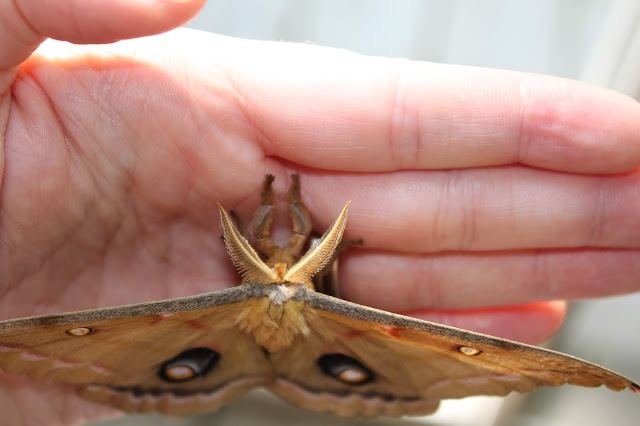
Those beautiful spots on its hindwings earned it the polyphemus name, after the Greek cyclops of myth, whose name was the same.
It has marvellous antennae that look like small ferns growing out of its head. This specimen is a male. The female antennae are less glamorous.
As you can see, it has a 'furry' appearance on its head and body, although those are really just scales that will rub off if they are touched too much.
The larvae of this moth eat maple, oak, willow and birch, among other deciduous tree species. In fact, the caterpillars eat 86,000 times their own weight in about 2 months before they transform into the moth form. Amazing!
The moth uses its feet to hold on very tightly, even though one doesn't really feel the grip. I could turn it completely upside-down.
He is also wearing marvellously "furry" trousers.
Those eye spots on the wings help camouflage the moth and can confuse potential predators. I hope to have more visits from this beautiful species in future, but having this nearly perfect one visit me this year was such a treat!






3 comments:
I've only seen one in person once. They really are amazing! I can't believe he was so friendly with you. Lucky!
WOW!!!
Beautiful moth, spectacular photography!
Post a Comment